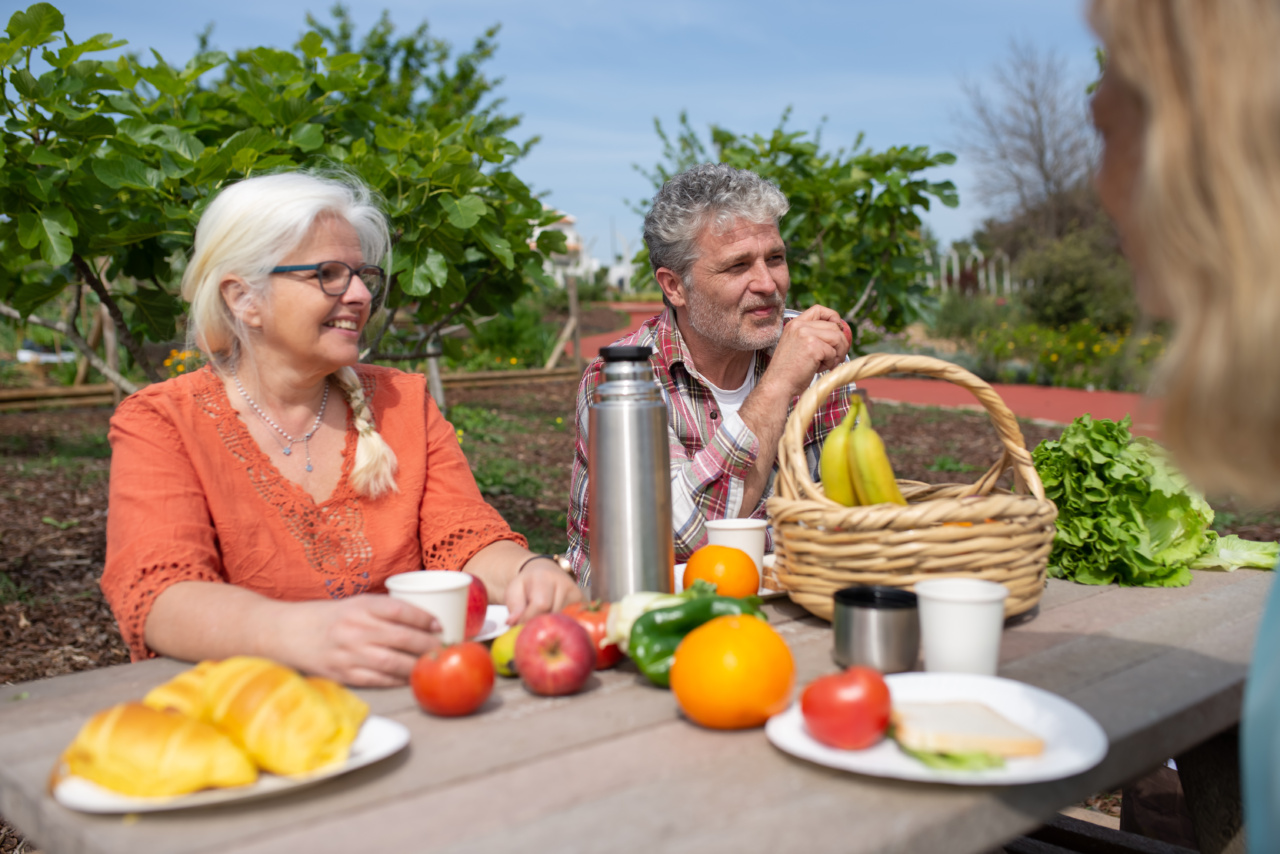As seniors age, it becomes increasingly important for them to prioritize their health and well-being. One crucial aspect of maintaining good health is through the consumption of nutritious foods, particularly fruits.
Fruits are not only delicious but also packed with essential nutrients that can support overall health and mitigate age-related health issues.
The Role of Fruits in Senior Health
Fruits are rich in vitamins, minerals, antioxidants, and fiber, making them an indispensable part of a senior’s diet.
They provide various health benefits that can help seniors stay healthy, manage chronic conditions, and boost their immune system. Let’s explore three must-eat fruits for seniors:.
1. Blueberries
Blueberries are often referred to as a “superfood” due to their remarkable health properties. They are packed with antioxidants, including anthocyanins, which have been linked to numerous health benefits.
These tiny berries are particularly beneficial for seniors due to their potential to improve cognitive function and reduce the risk of age-related cognitive decline, including conditions like dementia and Alzheimer’s disease.
2. Oranges
Oranges are a widely popular fruit known for their high vitamin C content. As seniors’ immune systems tend to weaken with age, they become more susceptible to infections and diseases.
Vitamin C plays a vital role in supporting immune function and strengthening the body’s natural defense mechanisms. Additionally, oranges are also an excellent source of dietary fiber, which aids digestion and helps prevent constipation, a common issue among seniors.
3. Bananas
Bananas are not only tasty but also incredibly convenient and nutrient-dense. They are an excellent source of potassium, a mineral that plays a crucial role in maintaining healthy blood pressure.
High blood pressure, or hypertension, is a prevalent health concern for seniors that can increase the risk of heart disease and stroke. Including bananas in the diet can help regulate blood pressure levels and promote cardiovascular health.
4. Strawberries
Strawberries are not only sweet and refreshing but also highly nutritious. They contain an array of vitamins and minerals, including vitamin C, manganese, folate, and potassium.
The high vitamin C content in strawberries supports immunity and collagen production, which is essential for maintaining healthy skin and joints. Strawberries are also rich in antioxidants, which can help reduce inflammation and oxidative stress in the body.
5. Apples
The saying “an apple a day keeps the doctor away” holds some truth, especially for seniors. Apples are rich in dietary fiber, which aids digestion and helps manage healthy cholesterol levels.
They also contain antioxidants that have been associated with a reduced risk of chronic diseases, such as heart disease, diabetes, and certain types of cancer. Apples are a versatile fruit that can be enjoyed in various forms, from fresh to baked or even as applesauce.
6. Kiwis
Kiwis, with their vibrant green flesh and unique flavor, are an excellent addition to a senior’s fruit intake. They are a rich source of vitamin C, vitamin K, vitamin E, dietary fiber, and potassium.
Kiwis have been noted for their potential to improve digestive health, boost the immune system, and reduce oxidative stress. Additionally, their high fiber content can aid in managing blood sugar levels and promoting heart health.
7. Pears
Pears are delicious and offer numerous health benefits for seniors. They are an excellent source of dietary fiber, which aids in digestion and may help prevent digestive disorders like constipation.
Pears also contain antioxidants and anti-inflammatory compounds that can support heart health, reduce the risk of certain cancers, and improve overall immune function. They are an ideal fruit for seniors due to their soft texture and mild taste.
8. Grapes
Grapes, whether green, red, or purple, are a great addition to a senior’s fruit selection.
They are loaded with antioxidants known as polyphenols, which have shown promise in supporting heart health and reducing the risk of age-related macular degeneration, a common eye condition. Grapes are also hydrating due to their high water content, making them an excellent choice for seniors who may need additional hydration.
9. Watermelon
Watermelon is a refreshing and hydrating fruit, perfect for seniors, especially during hot summer months. It is primarily composed of water and can help prevent dehydration, which can be a concern for older adults.
Watermelon also contains lycopene, an antioxidant that has been linked to heart health and may help reduce the risk of certain types of cancer.
10. Cherries
Cherries, whether sweet or tart, provide not only a burst of flavor but also impressive health benefits.
They are packed with antioxidants, including anthocyanins and quercetin, which have been associated with reducing inflammation, supporting brain health, and improving sleep quality. Cherries may also have a positive impact on joint pain and inflammation, making them a valuable addition to a senior’s diet.
Conclusion
Incorporating a variety of fruits into a senior’s diet is a fantastic way to enhance their health, well-being, and overall quality of life.
The fruits mentioned above, including blueberries, oranges, bananas, strawberries, apples, kiwis, pears, grapes, watermelon, and cherries, offer a wide range of health benefits specifically targeted towards seniors’ needs. So, make it a priority to include these must-eat fruits in your diet and enjoy the positive impact they can have on your health.





























